September 9 is World EV Day so I thought I’d write something that’s been on my mind for while.
Over the past few months, a narrative has developed in the media that electric car sales are slowing. As a regular on ABC Radio Sydney, talkback callers take every chance they can to tell me they saw a thing on Facebook where there are fields full of unsold electric cars in China.
Well, there probably are. They’re probably waiting to be shipped somewhere to be actually sold. A huge number of EVs are made in China and by brands you probably don’t expect – Volvo, Polestar, BMW and Tesla are just four literally off the top of my head.
The reality is, I can unearth photos of unsold cars of all types if the time is right. I tell people not to believe everything they see on Facebook.
I don’t really see myself as much of a journalist, more of a consumer advice person who likes to pepper his copy with jokes. Whether you find me a. funny or b. informative is entirely up to you but I hope I’m both.
Anyway, I don’t normally take much notice of this kind of silliness but I figured it’s worth digging in to see what’s going on and whether things really are tailing off in a manner so substantial it has the loons dancing around oil wells.
China
From a global perspective, the International Energy Agency expects an increase of 3 million over 2023’s 13.7 million EV sales, with most of the growth coming from China. That country has been an EV powerhouse over the past few years, with 5.4 million sales in 2023, up by more than a third in 2022.
EV market share was around 25 percent.
2023 also saw the national New Energy Vehicle subsidy on EV purchases removed, however tax breaks remain, mirroring Germany’s partial reversal on EV inducements.
PWC says that in Q2 China’s EV sales were up 13 percent and overall the Chinese domestic EV market is looking to outpace 2023’s record number. According to Reuters, the 2024 increase is looking like 31 percent over 2023, which means a total EV sales figure of around seven million, picking up the slack in Europe and, according to Reuters and others, fuelling global EV growth.
Tesla is all over the place in 2024 but recorded a big number in August (63,456) fuelled by a five year interest-free program. BYD had a massive month, selling over 148,000 battery electric cars. That company is continuing strong overall growth in its all-electrified line (BYD only sells hybrids, PHEVs and BEVs), with BEVs making up almost half of its 2.3 million sales so far this year.
European Union – EV sales are down in 2024 (so far).
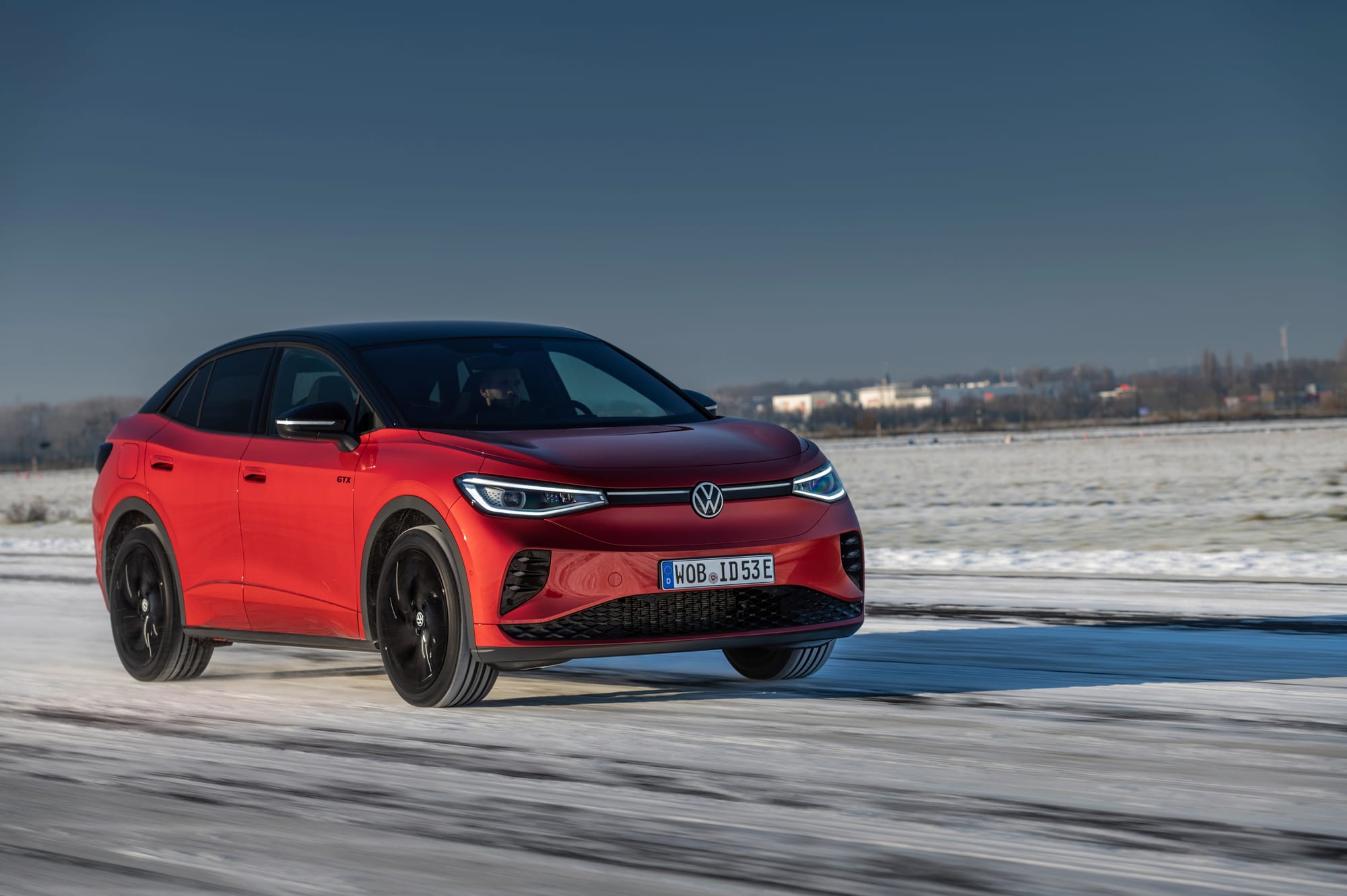
2023 was a great year for EV sales in the EU, with just over 1,840,000 battery electric vehicles sold. The Tesla Model Y had a massive year, followed by the Model 3. Sales across the board tanked very suddenly in December 2023 as incentives for EVs fell away in Germany.
Up until about this time last year, German EV buyers enjoyed a €4500 credit (A$7300) until the government suddenly killed the measure as part of a cuts program to sort out ailing government finances.
Even with that sudden drop in the single biggest European market, BEVs accounted for 16 percent of all new cars sold in Europe.
2024 has been a little slower, but not massively so. 2023’s king, the Model Y is losing ground as the year progresses. Sales are still very strong, but the mix is beginning to change. Volvo’s new compact SUV, the EX30 has had a good start, too, but that’s likely to be short-lived as China-built cars suffer a 30 percent tariff hit.
Those tarriffs will affect all Volvo, Polestar and BMW EVs made in China while VW’s refreshed ID.3 is enjoying a bit of a comeback and the Audi Q4 e-tron continues to sell well. Tesla supply is increasing from its Berlin plant so that should avoid the tariff problem.
BYD is looking to build a factory in Hungary and is considering a second EU factory to follow.
Sales to July (the most recent data I could find) showed a year-to-date figure of 815,399 EVs sold in Europe, meaning that the market is lagging slightly on the 2023 number.
BMW’s EV range continues to grow in stature and popularity. In July – perhaps a sign of things to come – the German giant toppled Tesla for the first time as the company that sold more EVs than anyone else, with i4 and iX1 leading the way. Tesla has only two models in Europe, so I’m expecting VW’s growing ID range to start troubling the US maker as well.
Interestingly, as Germany’s EV incentives have fallen away, the Netherlands, Belgium and France all saw year-on-year increases, although the French number was just a single percentage point.
In August, the German government responded to the fall in EV sales by saying new tax breaks were on the way for electric company cars, so that might stem the losses and get the country back on track for its 2030 and 2035 targets.
The petrol car market is down 7 percent for the year in Europe, so it will be interesting to see the wash-up at year’s end. As with most developed countries, high interest rates and a general global economic slowdown are affecting car markets.
United States
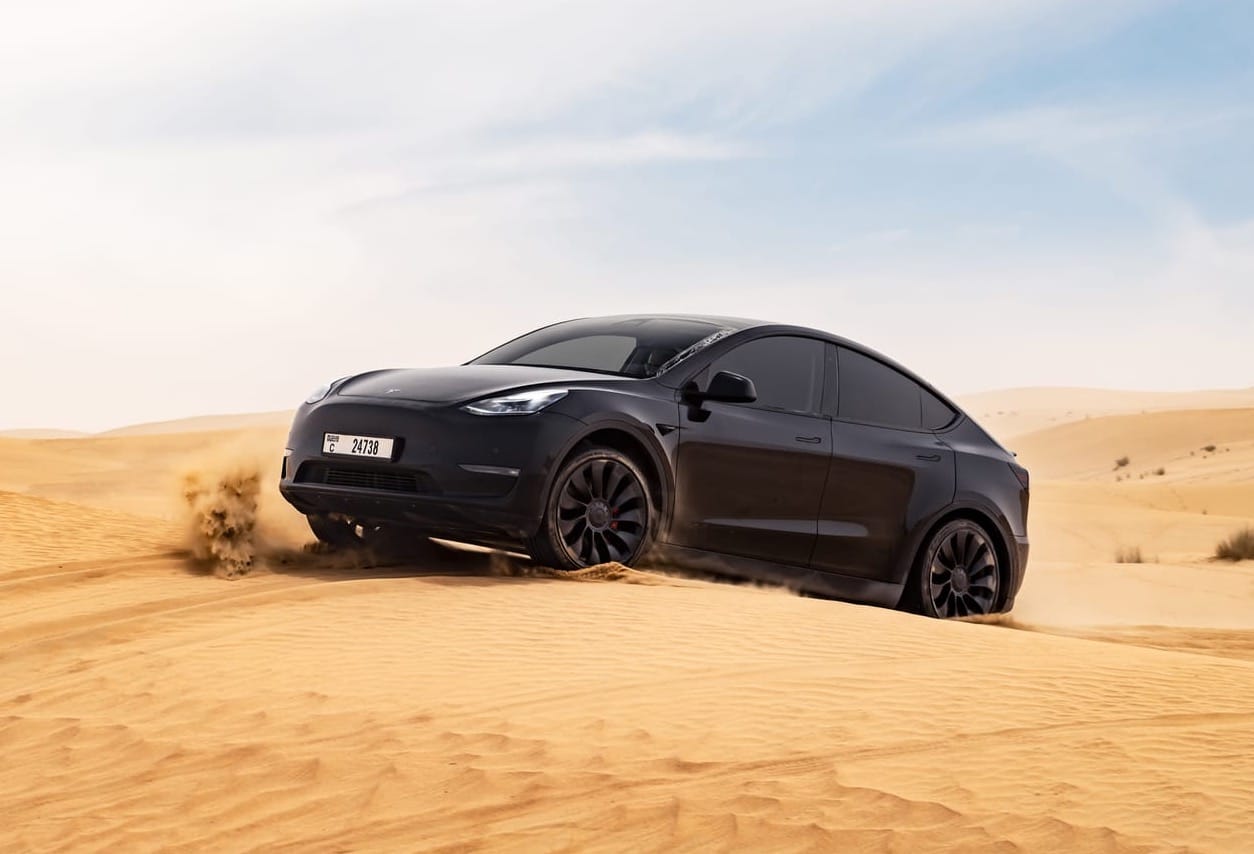
In the US, total electric car registrations amounted to 1.4 million. The Federal government continues to support electric cars with subsidies through the Clean Vehicle Tax Credit and Tesla famously cut prices. Several times.
In 2024, EV sales remain strong. The second quarter saw 330,000-plus EV sales, 11.3 percent more than the same period in 2023 and 23 percent higher than the first quarter of 2024.
Cox Automotive says that the Q2 result was due to better availability and some new models. Tesla sales fell below 50 percent market share for the first time while GM’s EV sales were up a whopping 40 percent.
The slightly soft first quarter result was also partially attributed to higher interest rates, which is also affecting the broader car market.
Consulting firm JD Power expects EV market share to reach 9 percent in the US in 2024, missing the company’s own forecast of 12 percent. Reuters reported that the firm still believes EV market share will reach 36 percent of market share in 2030 and nearly 60 percent by 2035.
Chinese makers are basically nowhere in the US, with a hefty 100 percent tariff on every car imported from there. BYD is looking to avoid tariffs in the US by building a factory in Mexico. Recent media reports suggest that this may be on hold until after the results of the US election.
We love being ad-free, so why not support us with a few bucks?
Australia
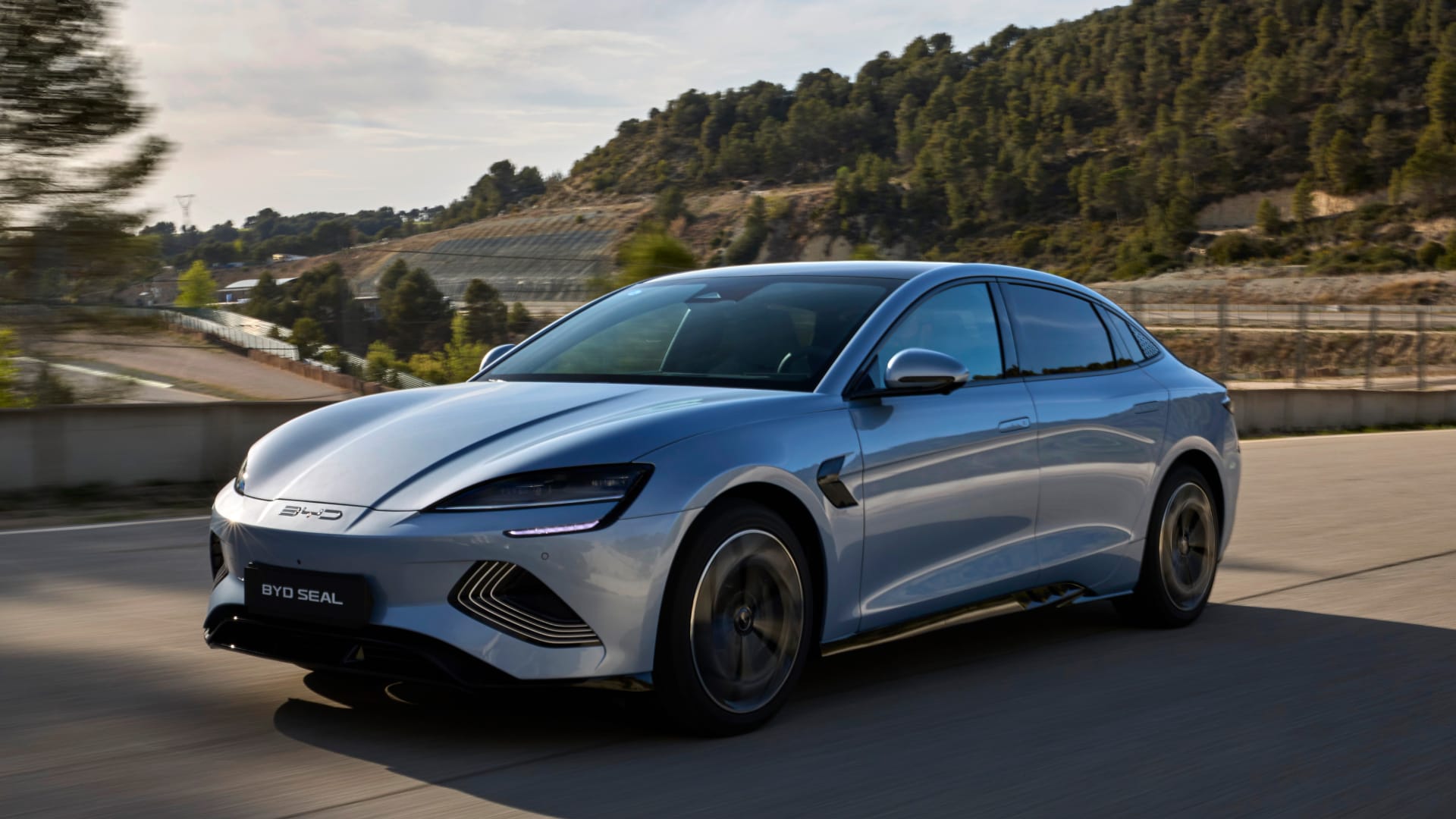
And then there’s little old us. In 2023, EV sales nearly reached 100,000, ending up at 98,436 and contributing to more than half the total EV fleet on the roads at the start of 2024.
That number equates to a market share of 8.45 percent, more than doubling from 3.8 percent in 2023. These numbers were driven by Tesla price cuts, the arrival of BYD’s Atto3 and Seal and the MG4.
By the end of August, 63,191 EVs had been sold, 27000 of those either Tesla Model 3 or Model Y. Despite that impressive number, Tesla is slowly receding in market share as new models arrive and prices are cut. The US maker’s market share was nearly 60 percent in 2023 but down to 45 in 2024, at least so far.
Overall, the EV market share is off by just half a percent, which is impressive given the end of the incentives on offer in NSW and Victoria at this time last year. Federal incentives remain, largely to do with Fringe Benefits Tax exemption on cars that slip under the Luxury Car Tax limit which explains the BMW i4 eDrive 35’s strong performance (1177 deliveries to July!).
One thing to note is the lack of Tesla and Polestar figures in the VFACTs reports. Both companies bailed out of the scheme citing the Federal Chamber of Automotive Industries lack of genuine support for electric vehicle transition. The FCAI had made what Tesla called misleading claims about the impact of the New Vehicle Emissions Scheme to bully the government into watering it down.
It should be noted Tesla had to be dragged into reporting its sales kicking and screaming and lasted two years.
The point of me telling you this (thanks to a reminder from an Instagram friend) is that without those two brands in VFACTs, folks in the media looking to mislead have an easy time of it without looking at either the EV Council numbers or the self-reporting numbers of both brands.
So is it true? Are EV sales falling away?
Globally? No. That’s the easy answer. It’s more nuanced, obviously.
European EV sales have dipped, mostly in Germany. The UK, which I haven’t covered here (and that’s the Brexit you voted for, Nigel) is still showing strong demand for EVs as is the US. As I’ve already said, the broader European market has slowed by 7 percent and with the EV drop of around the same number, it’s hardly cause for alarm or rejoicing depending on where you stand.
You may, however, be sensing a theme here. Tesla’s sales have been in a gentle decline for the last 18 months. It’s hard to tell what’s going on in China but because of the brand’s incredible stranglehold on the EV market and mindset, media reporting is basically, “Tesla down, all down.”
Legacy car makers and Chinese challengers are finally making a dent in Tesla’s dominance, which was always going to be the way whether Musk was a monk or the loon he actually is.
As Tesla is distracted by Musk’s insistence it’s now an AI and robotics company now, there’s no new product apart from the dire Cybertruck (on which they’re probably making no money), its (in)famous high margins are taking a hit as the company cuts prices to clear overproduction and overcome economic slowdown.
As EV competition slowly increases and European makers start getting out cars like the Renault 5 and begin making inroads into the light hatchback segment, I’d expect the growth to resume at a modest pace once interest rates fall.
That will be supported by the emergence of the global economy from its recent slowdown and a year full of elections in key industrialised countries like France, Britain and the US. And with the US Federal Reserve looking to rapidly cut interest rates after leaving them too high for too long, there’s a general bounce on the horizon.
So, no, the end of electric vehicles is not near. Nice try, Rupert.
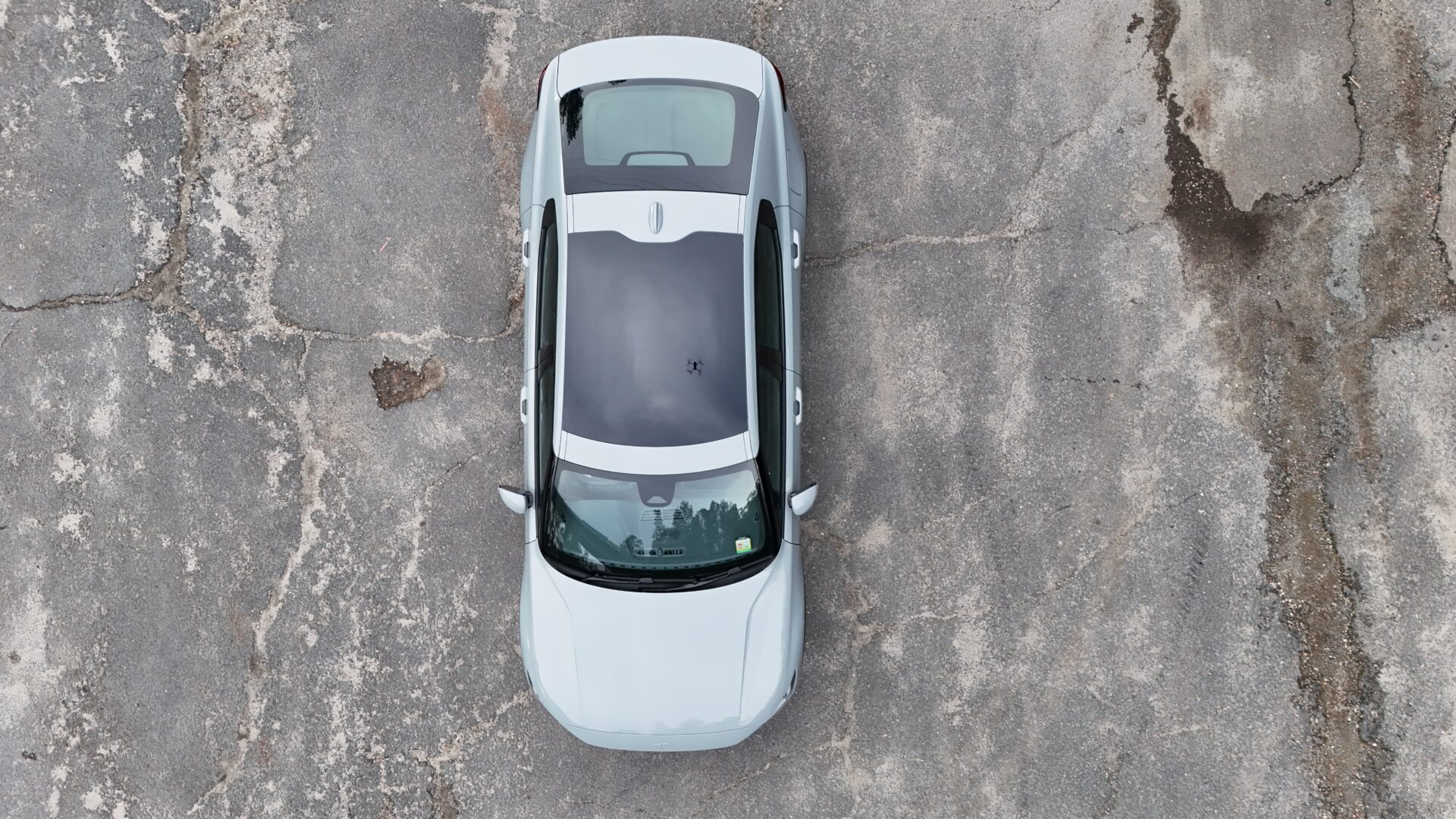


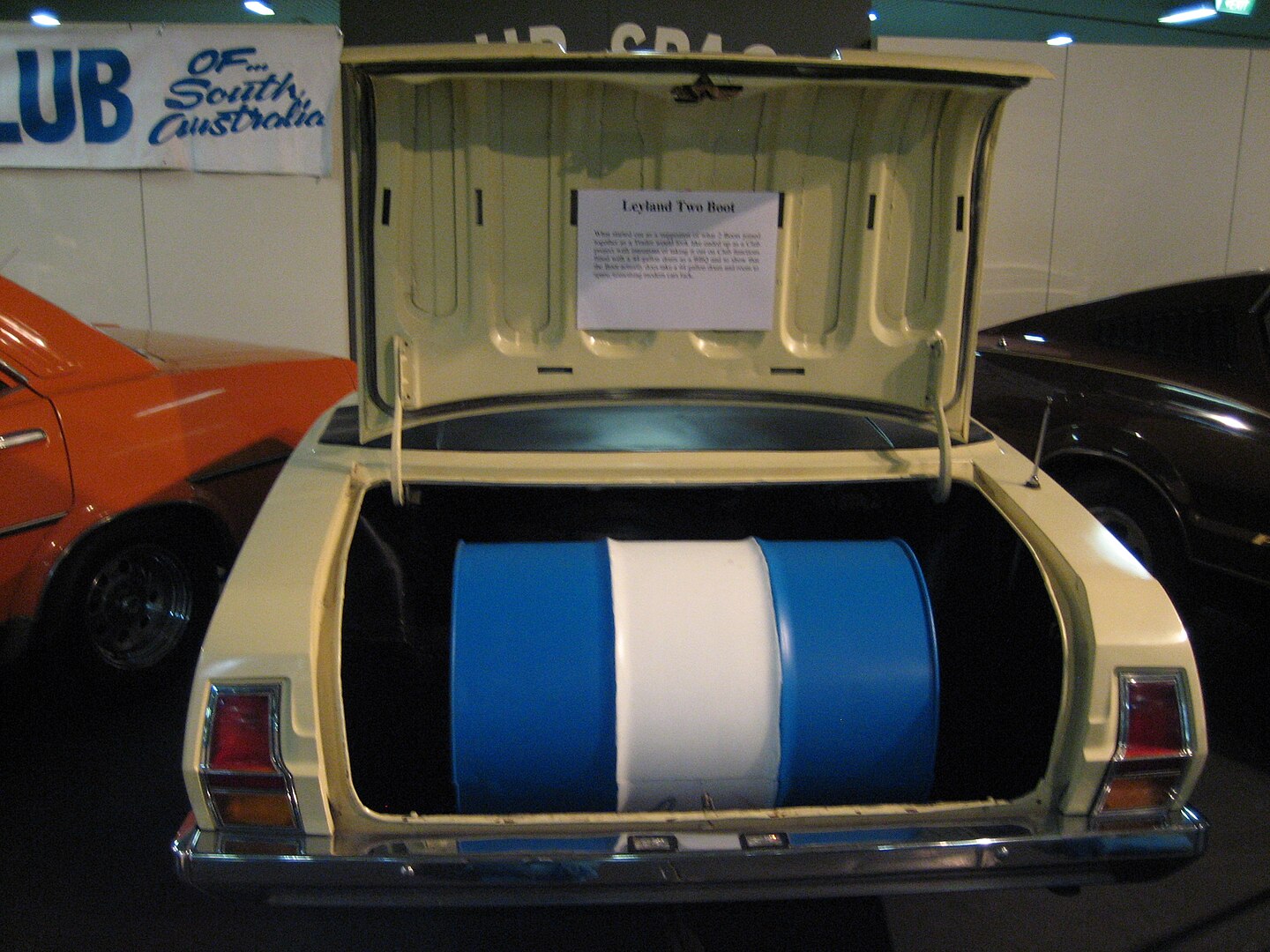
Leave a Reply